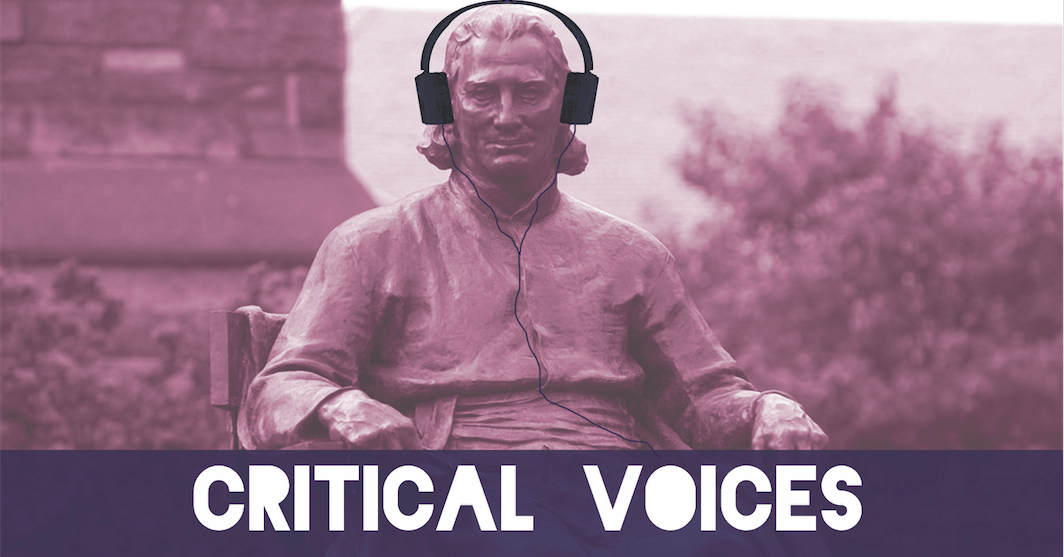Back in 2015, Quavo, leader and migos-est member of Migos, alerted the world “Gangsta rap is back.” This came off of Yung Rich Nation, the middle release of the YRN trilogy, and the capstone to the purified Atlanta-gangster rap the group had been developing since 2013. Before Cardi B, before Culture, before “Bad and Boujee,” Migos teased out every nuance that their triplet flow could bring, using it with a terrifying brutality that echoed mid-2000’s Atlanta trap artists by foregoing melodic mumble-singing in favor of staccato, rhythmic rapping. Migos’ newest production, Culture II, is their third studio album in as many years and is another attempt, after 2017’s Culture, to package their particular variant of ultra-technical and aggressive trap variant for a mass audience. Oddly enough, the result feels more like one of Migos’ mixtapes than a true continuation of the ideas presented in Culture: too long and full of dissonant ideas, but rife with enough absolute gems that Culture II’s existence is justified.
A fundamental issue with Migos’ style that plagues this album is that individual songs can become tedious because each member needs representation. Of the 24 songs, only three of them are less than three and a half minutes long. The previous solution to this issue was to rap quickly and technically, cutting up the monotony of the simplistic trap beats that Migos generally straddle. But in homogenizing their delivery for a popular audience, Migos aren’t able to combat this issue as they could before. As a result, songs like “Flooded” or “Crown the Kings” drag. Rather than allowing Takeoff or Offset to rip through these songs with the shouts and snarls that characterize their older work, they come through with bloated, monotone verses that aren’t fun to listen to. To make matters worse, Migos don’t just come through with weak flows, they say nothing with their more half-baked bars. The middle portion of the album largely sags because the three members run out of ways to talk about women and cocaine.
Likewise, a Migos project can live or die by its production and mixing. Most die; the mixtape-era for Migos was plagued by lackluster and dated beats, saved only by the skill that the rappers brought to each track. On Culture, Migos failed to explore how their new, poppier production interacted with their vocal delivery. While Culture II has a good number of filler beats on the album—“Gang Gang” and “Work Hard” spring to mind—Migos have never had production that successfully falls within the pop-cannon while simultaneously carrying enough edge to be appropriate for Migos’ brand. The Atlanta producers on Culture II, like DJ Durel and Buddah Bless, step-up their game from previous attempts, bringing focused trap-beats with emotional depth and range. Veteran producers like Pharrell and Kanye imbue tracks with variations on their established personal styles more fitting for the album.
Songs like “Narcos” or “Stir Fry” or “BBO” exemplify what Migos can accomplish when working with thoughtful producers. The flamenco samples on “Narcos” perfectly compliment Quavo’s hook-singing abilities, and Takeoff comes through with one of his most vicious bars in years. Immediately after, 21 Savage, seemingly incensed on the hook, leads “BBO” with a snarl that runs through the entire track. The beat has enough unique samples and melodic variety to keep the chorus and verses differentiated. This compliments the technicality of the bars and allows each member to come through with throwback, up-tempo triplet flows for the entirety of the track. These songs gleefully mix the technical proficiency of Migos with creative production and still feel like modern pop-rap, at least in its trap iteration.
The evolution of Migos may be best encapsulated in the album’s second track, “Superstars.” The beat rolls in with a fairly innocuous keyboard intro, only to be replaced immediately by a thumping, square bass and a spacey, bell melodic line. The two elements are well representative of the two distinct eras of Migos: the throbbing baseline representative of the regional aggression that the group had worked on for years, and the atmospheric synths coming from the more pop-friendly production influenced by Travis Scott and Mike Dean. None of the Migos come through with a particularly extraordinary verse, and Quavo’s initially appealing and danceable hook devolves into a repetitive and monotone nuisance. “Superstars” seems to pull more from their catalogue than make attempts at innovation; the ad-libs are washed out by the bass-heavy mix, and Migos’ monotone delivery, while a pleasant contrast from the amorphous melodic line, is easy to grow weary of. While pleasant for a first listen, “Superstars” represents how a half-baked combination of more conventional pop-rap melodic techniques and Migos’ mechanical flows winds up sounding more like a diet version of what Migos can truly accomplish.
Even still, there’s too much quality on this project to conclude so pessimistically. The closing songs on Culture II seem to suggest that Migos deserve the fame. Uncharacteristically somber, Quavo, Offset and Takeoff each reflect on their material success in the context of their north Atlanta origins in “Top Down On Da Nawf.” The song is jarring, in part because it’s tonally discordant with the joyous opulence on display all tape, but in large part because each member seems only to begin to open their eyes to the uncomfortable realities of the poverty in the face of their new-found wealth.
But there’s hope. The Takeoff-led “Made Men” suggests a brighter day. Backed by watery piano and auto-tuned choral shouts, Takeoff sings of the generational wealth that came with their new-found fame. Quavo describes providing for his mom and his sister, and Offset talks about paying for his friends and bringing himself and his family to a better place. The song itself is beautiful; the technicality of the Migos fits perfectly with the stuttered optimism on the track, which itself justifies the group’s recent tonal shift. In a paradoxical sense, Migos have trended towards a more pop-friendly tone in an effort to achieve this luxury for themselves and those who rely on them, but achieving that greater leisure has allowed them distance from the aggression present on the work made before this financial security. Culture II may hiccup with thoughtless filler tracks towards the middle, but ultimately Migos well represents the culture they claim to fly the flag for. Boisterous and extravagant, they sing for north Atlanta, their family and paychecks, and it seems like it’s worked out.





